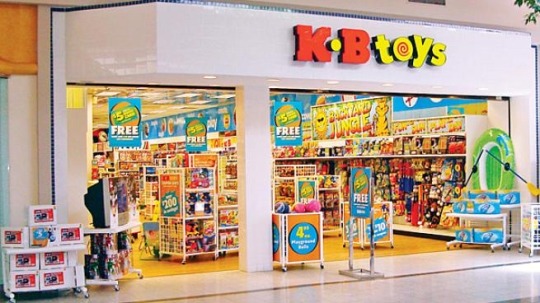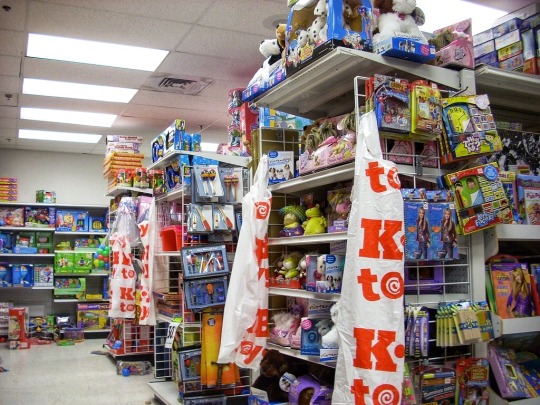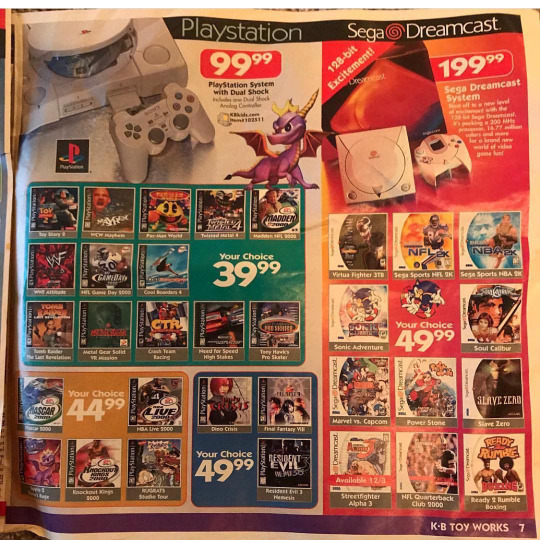#KB Toys
Explore tagged Tumblr posts
Text




KB Toys (1990’s - 2000’s)
#kb toys#1990s#1997#2000s#y2k#toys#Bratz#my little pony#tamagotchi#lite brite#easy bake oven#2000s nostalgia#y2k nostalgia#toy#2000s toys#00s toys#2000s kids#2000s style#y2k aesthetic#00s#y2k style#2000s kid#90s toys#90s#1990s toys#90s aesthetic#90s nostalgia#1990s nostalgia#1990s aesthetic#90s kid
285 notes
·
View notes
Text


1K notes
·
View notes
Text

KB Toys was it 👌🏽
163 notes
·
View notes
Text










#the first place I ever wanted to go when I got money#I’d get 50$ gift cards for Christmas and my birthday and it was straight to KB Toys#I was too young to appreciate just how f*cling high the prices were#nostalgia#kb toys#the 90s#tbh I would have been better off just going to target#g.i. joe#barbie#hot wheels#bopper#furby#tnmt#pokemon cards#digimon cards#action figures#kb kids#password diary#tamagotchi#childhood#apologeticallyfat#the good ole days
68 notes
·
View notes
Text

16 notes
·
View notes
Text

19 notes
·
View notes
Text

Go back in time! It's 1998, which console are you buying?
I think the Game Boy Color + Pokemon red. 🔥 Considering I can take it everywhere + the console and a game are the same price as the N64, the deal is just better.
Though, I was almost sold on that bonus offer of a free force pack and memory card combo deal.
What about you?!
#retro games#retro#retro gaming#game boy#gameboy#gameboy color#game boy color#kb toys#90s#90's#the 90's#Pokemon#Pokemon yellow#Pokemon blue#pokemon red#zelda#jet force gemini#nintendo#n64#nintendo 64#crystal#crystal consoles#summer
10 notes
·
View notes
Text

10 notes
·
View notes
Photo





Marvel Legends
Age Of Apocalypse
Magneto
by Hasbro (2021)
Picked this up in the wild at Walmart on 10-13-21










8 notes
·
View notes
Text

Scanned from Spirit of Aloha, November 1998.
#playstation#psx#ps1#magazine scan#media scan#retro advertising#90s#1998#y2k aesthetic#hawaii#kb toys#imagine going to hawaii and buying a psx
5 notes
·
View notes
Text
Pokemon C-Watch ad (1999).

#c-watch#pokemon#trendmasters#watch#advertising#90s#toys#nintendo#tv tokyo#vintage#toys r us#walmart#target#kmart#kb toys#jc penney#sears#macy's#kohl's#nostalgia#childhood#retro
56 notes
·
View notes
Text






KB Toys (Closed 2009)
#KB Toys#toys#toy#1990s#90s#90s toys#1990s toys#gift cards#y2k#2000s#00s#1997#1998#1999#2000#2000s nostalgia#2000s kids#y2k nostalgia#2000s style#y2k aesthetic#y2k style#2000s kid#toys r us#mall#Toy Story 2#furby#teletubbies#90s kid#1990s kid#90s nostalgia
203 notes
·
View notes
Text
This is happening all over, pretty sure this is what happened to both KayBee and Toys R’ Us. And now there are no toy stores.
Red Lobster was killed by private equity, not Endless Shrimp

For the rest of May, my bestselling solarpunk utopian novel THE LOST CAUSE (2023) is available as a $2.99, DRM-free ebook!

A decade ago, a hedge fund had an improbable viral comedy hit: a 294-page slide deck explaining why Olive Garden was going out of business, blaming the failure on too many breadsticks and insufficiently salted pasta-water:
https://www.sec.gov/Archives/edgar/data/940944/000092189514002031/ex991dfan14a06297125_091114.pdf
Everyone loved this story. As David Dayen wrote for Salon, it let readers "mock that silly chain restaurant they remember from their childhoods in the suburbs" and laugh at "the silly hedge fund that took the time to write the world’s worst review":
https://www.salon.com/2014/09/17/the_real_olive_garden_scandal_why_greedy_hedge_funders_suddenly_care_so_much_about_breadsticks/
But – as Dayen wrote at the time, the hedge fund that produced that slide deck, Starboard Value, was not motivated by dissatisfaction with bread-sticks. They were "activist investors" (finspeak for "rapacious assholes") with a giant stake in Darden Restaurants, Olive Garden's parent company. They wanted Darden to liquidate all of Olive Garden's real-estate holdings and declare a one-off dividend that would net investors a billion dollars, while literally yanking the floor out from beneath Olive Garden, converting it from owner to tenant, subject to rent-shocks and other nasty surprises.
They wanted to asset-strip the company, in other words ("asset strip" is what they call it in hedge-fund land; the mafia calls it a "bust-out," famous to anyone who watched the twenty-third episode of The Sopranos):
https://en.wikipedia.org/wiki/Bust_Out
Starboard didn't have enough money to force the sale, but they had recently engineered the CEO's ouster. The giant slide-deck making fun of Olive Garden's food was just a PR campaign to help it sell the bust-out by creating a narrative that they were being activists* to save this badly managed disaster of a restaurant chain.
*assholes
Starboard was bent on eviscerating Darden like a couple of entrail-maddened dogs in an elk carcass:
https://web.archive.org/web/20051220005944/http://alumni.media.mit.edu/~solan/dogsinelk/
They had forced Darden to sell off another of its holdings, Red Lobster, to a hedge-fund called Golden Gate Capital. Golden Gate flogged all of Red Lobster's real estate holdings for $2.1 billion the same day, then pissed it all away on dividends to its shareholders, including Starboard. The new landlords, a Real Estate Investment Trust, proceeded to charge so much for rent on those buildings Red Lobster just flogged that the company's net earnings immediately dropped by half.
Dayen ends his piece with these prophetic words:
Olive Garden and Red Lobster may not be destinations for hipster Internet journalists, and they have seen revenue declines amid stagnant middle-class wages and increased competition. But they are still profitable businesses. Thousands of Americans work there. Why should they be bled dry by predatory investors in the name of “shareholder value”? What of the value of worker productivity instead of the financial engineers?
Flash forward a decade. Today, Dayen is editor-in-chief of The American Prospect, one of the best sources of news about private equity looting in the world. Writing for the Prospect, Luke Goldstein picks up Dayen's story, ten years on:
https://prospect.org/economy/2024-05-22-raiding-red-lobster/
It's not pretty. Ten years of being bled out on rents and flipped from one hedge fund to another has killed Red Lobster. It just shuttered 50 restaurants and declared Chapter 11 bankruptcy. Ten years hasn't changed much; the same kind of snark that was deployed at the news of Olive Garden's imminent demise is now being hurled at Red Lobster.
Instead of dunking on free bread-sticks, Red Lobster's grave-dancers are jeering at "Endless Shrimp," a promotional deal that works exactly how it sounds like it would work. Endless Shrimp cost the chain $11m.
Which raises a question: why did Red Lobster make this money-losing offer? Are they just good-hearted slobs? Can't they do math?
Or, you know, was it another hedge-fund, bust-out scam?
Here's a hint. The supplier who provided Red Lobster with all that shrimp is Thai Union. Thai Union also owns Red Lobster. They bought the chain from Golden Gate Capital, last seen in 2014, holding a flash-sale on all of Red Lobster's buildings, pocketing billions, and cutting Red Lobster's earnings in half.
Red Lobster rose to success – 700 restaurants nationwide at its peak – by combining no-frills dining with powerful buying power, which it used to force discounts from seafood suppliers. In response, the seafood industry consolidated through a wave of mergers, turning into a cozy cartel that could resist the buyer power of Red Lobster and other major customers.
This was facilitated by conservation efforts that limited the total volume of biomass that fishers were allowed to extract, and allocated quotas to existing companies and individual fishermen. The costs of complying with this "catch management" system were high, punishingly so for small independents, bearably so for large conglomerates.
Competition from overseas fisheries drove consolidation further, as countries in the global south were blocked from implementing their own conservation efforts. US fisheries merged further, seeking economies of scale that would let them compete, largely by shafting fishermen and other suppliers. Today's Alaskan crab fishery is dominated by a four-company cartel; in the Pacific Northwest, most fish goes through a single intermediary, Pacific Seafood.
These dominant actors entered into illegal collusive arrangements with one another to rig their markets and further immiserate their suppliers, who filed antitrust suits accusing the companies of operating a monopsony (a market with a powerful buyer, akin to a monopoly, which is a market with a powerful seller):
https://www.classaction.org/news/pacific-seafood-under-fire-for-allegedly-fixing-prices-paid-to-dungeness-crabbers-in-pacific-northwest
Golden Gate bought Red Lobster in the midst of these fish wars, promising to right its ship. As Goldstein points out, that's the same promise they made when they bought Payless shoes, just before they destroyed the company and flogged it off to Alden Capital, the hedge fund that bought and destroyed dozens of America's most beloved newspapers:
https://pluralistic.net/2021/10/16/sociopathic-monsters/#all-the-news-thats-fit-to-print
Under Golden Gate's management, Red Lobster saw its staffing levels slashed, so diners endured longer wait times to be seated and served. Then, in 2020, they sold the company to Thai Union, the company's largest supplier (a transaction Goldstein likens to a Walmart buyout of Procter and Gamble).
Thai Union continued to bleed Red Lobster, imposing more cuts and loading it up with more debts financed by yet another private equity giant, Fortress Investment Group. That brings us to today, with Thai Union having moved a gigantic amount of its own product through a failing, debt-loaded subsidiary, even as it lobbies for deregulation of American fisheries, which would let it and its lobbying partners drain American waters of the last of its depleted fish stocks.
Dayen's 2020 must-read book Monopolized describes the way that monopolies proliferate, using the US health care industry as a case-study:
https://pluralistic.net/2021/01/29/fractal-bullshit/#dayenu
After deregulation allowed the pharma sector to consolidate, it acquired pricing power of hospitals, who found themselves gouged to the edge of bankruptcy on drug prices. Hospitals then merged into regional monopolies, which allowed them to resist pharma pricing power – and gouge health insurance companies, who saw the price of routine care explode. So the insurance companies gobbled each other up, too, leaving most of us with two or fewer choices for health insurance – even as insurance prices skyrocketed, and our benefits shrank.
Today, Americans pay more for worse healthcare, which is delivered by health workers who get paid less and work under worse conditions. That's because, lacking a regulator to consolidate patients' interests, and strong unions to consolidate workers' interests, patients and workers are easy pickings for those consolidated links in the health supply-chain.
That's a pretty good model for understanding what's happened to Red Lobster: monopoly power and monopsony power begat more monopolies and monoposonies in the supply chain. Everything that hasn't consolidated is defenseless: diners, restaurant workers, fishermen, and the environment. We're all fucked.
Decent, no-frills family restaurant are good. Great, even. I'm not the world's greatest fan of chain restaurants, but I'm also comfortably middle-class and not struggling to afford to give my family a nice night out at a place with good food, friendly staff and reasonable prices. These places are easy pickings for looters because the people who patronize them have little power in our society – and because those of us with more power are easily tricked into sneering at these places' failures as a kind of comeuppance that's all that's due to tacky joints that serve the working class.

If you'd like an essay-formatted version of this post to read or share, here's a link to it on pluralistic.net, my surveillance-free, ad-free, tracker-free blog:
https://pluralistic.net/2024/05/23/spineless/#invertebrates
6K notes
·
View notes
Text


I had a random memory of this action toy that I gotten from KB Toys back in 99? Im not sure if this is the same one but I feel like it is. She’s very similar to what I remember. I saw this girl action figure & wanted her. Wasn’t sure who or what she’s from I just wanted her as a toy. I don’t know but I feel like mine had a white cut off top, cut off shorts & white heels with a tattoo but can’t remember where?
0 notes
Text
Forever trying to find this toy/game my mom had that disappeared. I don’t really even know how to describe it except it looked like something they sold at Kay bee toys (not sure if it was actually from there.) there were these colorful iridescent/holographic balls that you put on this course or whatever and you turned it on and they moved around like a fountain or a rollercoaster or something. I don’t remember if it had music or not but it was one of the coolest things I had ever seen and I’ve never seen anything like it since.
#Kay bee toys#kb toys#old toys#old games#vtg toys#vintage#idk if she got it in the 90’s or if it was older#but it would have been no older than 70’s-80’s#I don’t know what it was called or anything sadly#I just really hope someone remembers so that I can find another one to replace the one that disappeared#nostalgia
0 notes
Text

31 notes
·
View notes